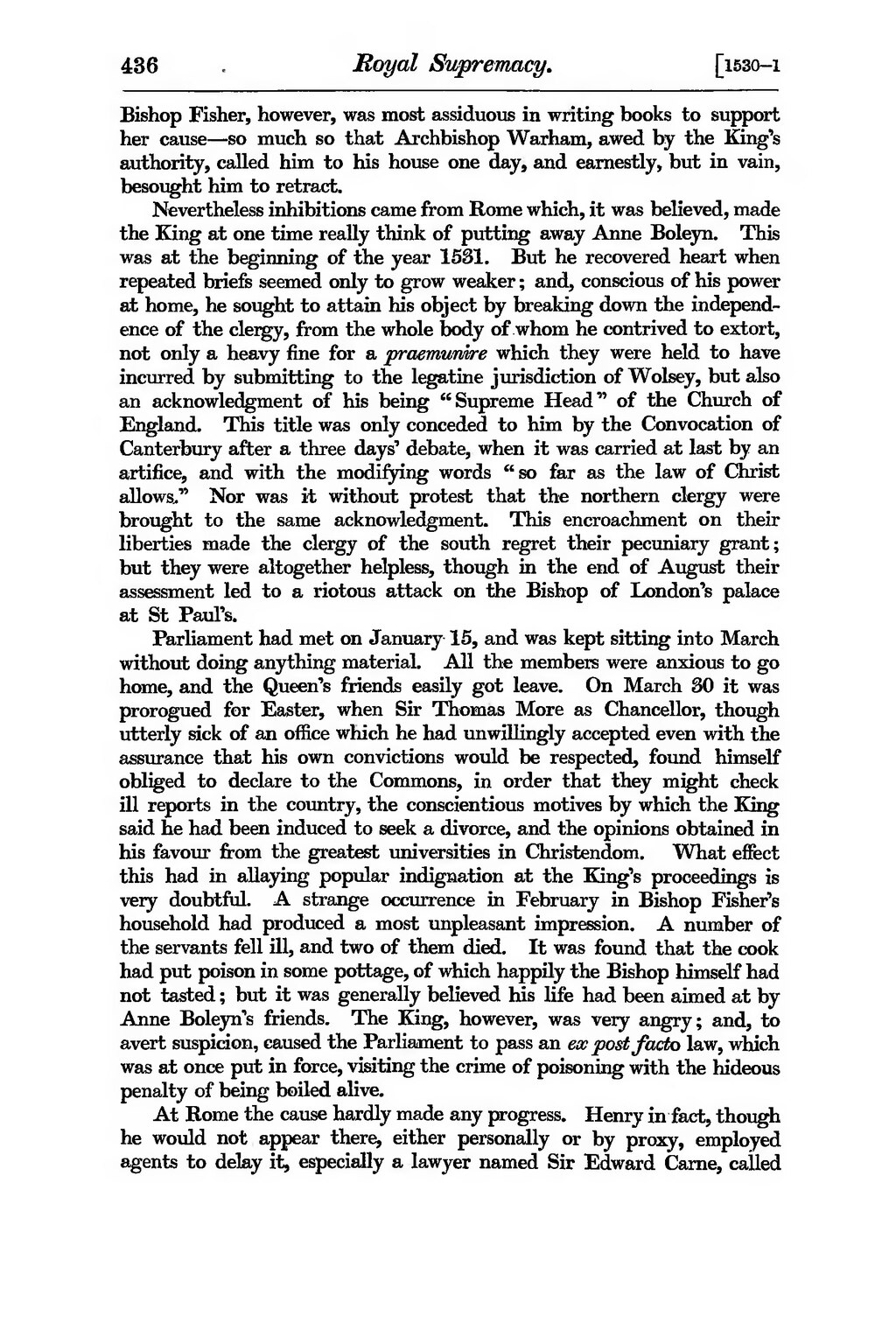Bishop Fisher, however, was most assiduous in writing books to support her cause-so much so that Archbishop Warham, awed by the King's authority, called him to his house one day, and earnestly, but in vain, besought him to retract.
Nevertheless inhibitions came from Rome which, it was believed, made the King at one time really think of putting away Anne Boleyn. This was at the beginning of the year 1531. But he recovered heart when repeated briefs seemed only to grow weaker; and, conscious of his power at home, he sought to attain his object by breaking down the independence of the clergy, from the whole body of whom he contrived to extort, not only a heavy fine for a praemunire which they were held to have incurred by submitting to the legatine jurisdiction of Wolsey, but also an acknowledgment of his being " Supreme Head " of the Church of England. This title was only conceded to him by the Convocation of Canterbury after a 'three days' debate, when it was carried at last by an artifice, and with the modifying words "so far as the law of Christ allows." Nor was it without protest that the northern clergy were brought to the same acknowledgment. This encroachment on their liberties made the clergy of the south regret their pecuniary grant; but they were altogether helpless, though in the end of August their assessment led to a riotous attack on the Bishop of London's palace at St Paul's.
Parliament had met on January 15, and was kept sitting into March without doing anything material. All the members were anxious to go home, and the Queen's friends easily got leave. On March 30 it was prorogued for Easter, when Sir Thomas More as Chancellor, though utterly sick of an office which he had unwillingly accepted even with the assurance that his own convictions would be respected, found himself obliged to declare to the Commons, in order that they might check ill reports in the country, the conscientious motives by which the King said he had been induced to seek a divorce, and the opinions obtained in his favour from the greatest universities in Christendom. What effect this had in allaying popular indignation at the King's proceedings is very doubtful. A strange occurrence in February in Bishop Fisher's household had produced a most unpleasant impression. A number of the servants fell ill, and two of them died. It was found that the cook had put poison in some pottage, of which happily the Bishop himself had not tasted; but it was generally believed his life had been aimed at by Anne Boleyn's friends. The King, however, was very angry; and, to avert suspicion, caused the Parliament to pass an ex post facto law, which was at once put in force, visiting the crime of poisoning with the hideous penalty of being boiled alive.
At Rome the cause hardly made any progress. Henry in fact, though he would not appear there, either personally or by proxy, employed agents to delay it, especially a lawyer named Sir Edward Carne, called his excusatar,
